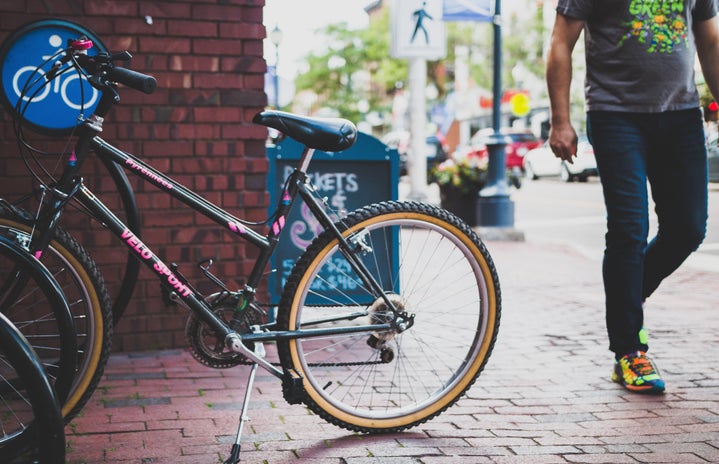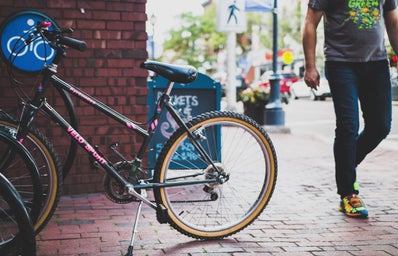For one week, every year for the past three years, I lie in anticipation for my favorite TV show to begin its next season. I wish I were kidding, but I really can’t stop waiting. And for good reason.
For people who do not know me (and can’t automatically guess what TV show I am referring to) I am talking about this one:
This is, by far, my favorite show right now. It’s not only brilliant in its plot (a washed-up actor falling his way up to stardom) and its themes (the hardships of being famous, the meaning of life and its potential emptiness, managing depression and self-harm, etc.), but in its character development. The show is also great due to visual gags (since the world is full of animal people, there are tons of animal jokes), fabulous voice actors (Amy Sedaris, Patton Oswalt, even Ru Paul), and unique art style/music, which is probably why the show’s 2nd, 3rd, 4th, and pre-5th season Rotten Tomatoes scores range from 97-100% fresh (Seasons 2,3 and 5 maintain 100%, while Season 1 sits at a 64%). It’s just good television. Really, really good television.
I could talk for hours about this show, but for now, I want to get back to the characters, specifically Diane Nguyen: Bojack’s ghostwriter and recurring character.
Ask most Bojack fans, and they’ll agree that Diane is pretty easy to dislike, but wasn’t always. In Season 1, she was the smart, realistic, feminist ghostwriter for Bojack’s new memoir and the girlfriend of Bojack’s “rival” Mr. Peanutbutter. She acts as a voice of reason for Bojack and he learns to rely on her, going even as far as to fall in love with her. The thing is, this idealized version of Diane lasts for only 3 full episodes.
Anyone who knows the show would probably say that S1E5 (“Live Fast, Diane Nguyen”), where we meet Diane’s toxic, unsupportive family, is more accurate to the beginning of her character development, and I thought so too. One scene that stuck out in my mind, however, as the downfall of Diane’s moral high ground, was the very last scene in the prior episode (Zoes and Zeldas). For some context, the episode starts with an explanation of the Zoe-Zelda paradigm found in Mr. Peanutbutter’s TV show (watch the clip here). At the end of the episode, Diane catches her ex-boyfriend, Wayne, faking his news article on Mr. Peanutbutter, and during the argument, Wayne tells Diane that the life she’s currently living is a lie. She says:
“You know what your problem is? You’re trying to be a Zelda but you’re so obviously a Zoe… You can live your happy Zelda life in this happy Zelda town and pretend you’re a happy Zelda, but I know you, and this isn’t you. People don’t change, Diane, not really. Mr. Peanutbutter’s a Zelda. He’s happy and he’s carefree and he’s loving, but you and me, we’re Zoes… We’re Zoes, Diane. We’re cynical and we’re sad and we’re mean. There’s a darkness inside you, and you can bury it deep in burritos as big as your head, but someday soon, that darkness is gonna come out, and when it does, I want you to call me.”
This quote’s significance to Diane is mitigated by the onscreen scene of Bojack revealing how he royally screwed with Todd (in my head, it serves as further evidence that Bojack and Diane would be a good couple), but it still marks the first point in the show where we see Diane as more flawed. This hasn’t developed into her character yet, but now we know it exists.
The next episode provides more context into that darkness; the audience learns that she has never gotten recognition from her family for anything she has ever done, her brothers have been teasing her at least until she turned 18, and her mother has never forgiven her for leaving Boston for Los Angeles. Not to mention her calm reaction to the news that her father had died. This episode is only for context, as the true beginning of the Diane hate-train doesn’t begin until 5 episodes later.
Season 1, Episode 10 (“One Trick Pony”) is when I first lost hope for Diane because that’s when Chekov’s gun goes off; Diane actually calls Wayne. She gets in a fight with Bojack after he tells her that his memoir was poorly written and that she did a bad job. She gets so frustrated (probably because Bojack doesn’t give her the recognition she thought she deserves), so she calls Wayne, asking him to publish the first two chapters of the book on Buzzfeed. This is not only unprofessional but deeply disrespectful to her friendship with Bojack, even though the book she wrote was well written and successful.
This is where a pattern emerges. In her quest to do the right thing and create a better world, she jeopardizes the people around her:
-
In Season 2, Diane breaks into a chicken slaughterhouse, endangering a 16-year-old girl, just to free some chickens. The final scene of the episode shows that her work was absolutely pointless:
-
In Season 2, Diane jeopardizes her husband’s job by trying to out his sexually abusive co-worker. The co-worker gets away with it.
-
In Season 2, she goes to a wartorn country, thinking she’s going to help people but leaves when she realizes her job is just to feed a rich clothesline owner’s ego. When she leaves, she is so embarrassed that she couldn’t help people and hides her shame at Bojack’s house; she hurts Bojack’s relationship with a girlfriend and cuts off her doting husband in the process.
-
In Season 3, Diane tries to make a statement about pro-choice but gets angry when the celebrity she works for doesn’t act the way she expects. Her boss, the agent/manager Princess Carolyn, has to point out that her first priority is to make the client happy.
-
In Season 4, Diane tries for months to only be supportive of Mr. Peanutbutter and his gubernatorial campaign but gets into huge fights with him when he becomes a pro-fracking candidate.
-
In Season 4, she advocates for women’s gun rights, even though her husband is very anti-gun.
There are more examples, including some examples where Diane does something wrong without a good reason (ignoring her friends, trashing Bojack’s house, etc.), but these were the ones I could remember. In all of these examples, it’s a case of Diane screwing up locally while trying to do good things more broadly. It has to be unbelievably frustrating to constantly want the best and get no recognition for your efforts. Compared to Bojack, who does terrible things to help himself, Diane is a saint.
Even still, this repetition of bad behavior (I will admit, it’s very bad behavior) dehumanized her. For a while, I saw Diane as a self-aggrandizing jerk who only cared for herself. I still do, actually, but I accept it as her primary character flaw and try to look at what made me so angry.
The reason she’s so disliked is because of who she ends up hurting the most: Mr. Peanutbutter. Mr. Peanutbutter is (understandably, he’s a Yellow Lab) one of the most likeable characters in the show. As Wayne says, Mr. Peanutbutter is happy, carefree, and loving. I was angry at Diane for ignoring his wishes all the time, simply because Mr. Peanutbutter asks so little of her.
The thing is, Mr. Peanutbutter constantly goes against her wishes too. He throws her extravagant parties that she doesn’t want, doubts her when she says she knows something and indirectly/directly stands for things she asks him not to stand for (like fracking; Mr. Peanutbutter only said he was the fracking candidate because of an error that Todd made). She is so fed up with her relationship that, by the end of Season 4, she hints at wanting a divorce; not because she doesn’t love him, but that the relationship is exhausting.
Mr. Peanutbutter, in a flashback episode, gives Diane some good advice:
Diane takes this the wrong way. She does what she wants without thinking about what others think, which really hurts her closest friends. Even still, she craves validation from her family, her coworkers, and Los Angeles as a whole. In the aforementioned episode, she gets excited that the New Yorker responded to her writing, but her friends refuse to congratulate her. She also calls home to her mother about her writing getting published in McSweeney’s, but her mother can’t congratulate Diane either. Diane lacks Mr. Peanutbutter’s self-confidence and relies on others to tell her that what she’s doing is good; it’s especially hard on her because she never gets the validation Mr. Peanutbutter does. Even still, she continues to burn bridges for the right thing, sacrificing her own sanity, marriage, and reputation, to get the recognition she deserves. Diane wants to be a good person, but she really just doesn’t know how; there is nothing more humanizing than that.

